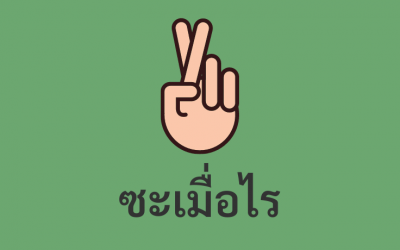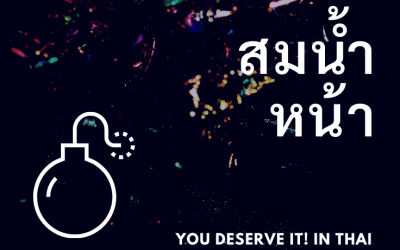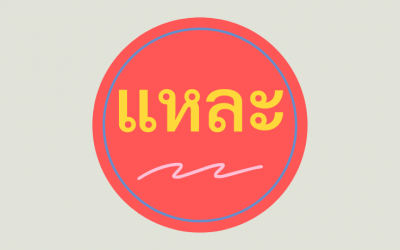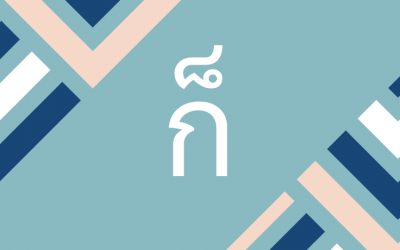Third person pronouns in Thai are not hard but can be a little bit confusing. In this article, we will clear that doubt, and I will also explain the common mistake that foreigners like to make when learning Thai. Check out the video version of this article above and...
Blog
Uses of เนี่ย (nîia)
เนี่ย (nîia) is a very useful commonly used Thai particle that you must know to sound like a Thai. You might see this word all the time, but you aren't sure on how to use เนี่ย. There are 3 uses of เนี่ย that I will explain in this article. To introduce a subject You...
How to say “I/me” Like a Thai (Personal Pronouns in Thai) | Not just chan and pom!
If you have learned Thai from a book, you would see that ฉัน (chăn) and ดิฉัน (dì-chăn) is "I" for women and ผม (pŏm) is "I" for men. They are not wrong, but there are many more ways to say "I" to make you sound more like a real Thai. In this article, I will explain...
Interview with a foreigner who learned to speak fluent Thai
https://www.youtube.com/embed/IrKkSJ2Ze-k Download the transcript for the video here. In the video above, I interviewed my boyfriend, who speaks Thai really well. He was one of my Thai students a few years ago. In the interview, he talks about how and why he started...
Interview with Kru Grace – Helpful Tips for Thai students of all levels
https://www.youtube.com/embed/nWxR-DdRpuk In this video, I was interviewed by my boyfriend (he speaks Thai really well). Please feel free to download the transcript of the video here. I talk about the struggles I notice many students who learn Thai face, the most...
How to use ซะเมื่อไร to be playful in Thai
One of the words that I always said when I was younger was ซะเมื่อไร (sá mêua rai) when I was playing with my brother. ซะเมื่อไร (sá mêua rai) is a fixed expression which functions to reverse the meaning of everything you said earlier. It's equivalent to saying...
10 tips to sound more Thai
https://www.youtube.com/embed/NRqXnvwrr5w Watch the video for some tips not found in this article. Download the Thai transcript for the video here. I have many friends who have learned Thai and speak fluently. However, they don't sound exactly like native Thai...
How to say you deserve it in Thai
When I was young, 'you deserve it' was one of my favorite phrases that I used every day with my brother. The word is สมน้ำหน้า (sŏm nám nâa) Many times this phrase is shortened to สม (sŏm). You can memorize the whole phrase as a fixed phrase for 'you deserve it'....
Understanding Royal words in Thai
Thai royal words or คำราชาศัพท์ (raa-chaa sàp) can be difficult even for Thais themselves because it is not used in everyday conversation. There are 3 cases in which we use royal words: We use it when talking about the royal familyWhen talking about Jesus as written...
How to use แหละ làe in Thai
แหละ (làe) is a Thai particle that you might have heard but aren't quite sure how to use. In Thai, there are many particles that change the nuance or even the meaning of the sentences. In this article, I will explain how and when to use แหละ (làe). To say "That's it!"...
How to use ก็ | Ultimate guide to ก็
ก็ (gôr) is somewhat difficult for non-Thais to comprehend because it appears so often in colloquial Thai language and most of the time you can't translate it directly to English. In this blog post, I will help you understand the meaning of ก็ and the different uses....
How to use หรอก | Thai Particle: หรอก
After reading this article, you should be able to get a good feel for when หรอก (ròk) is used and how it's used. Meaning of หรอก หรอก (ròk) is a particle that is placed at the end of negative statements (ex: it's not a problem, it's not it, I won't be there, I don't...












